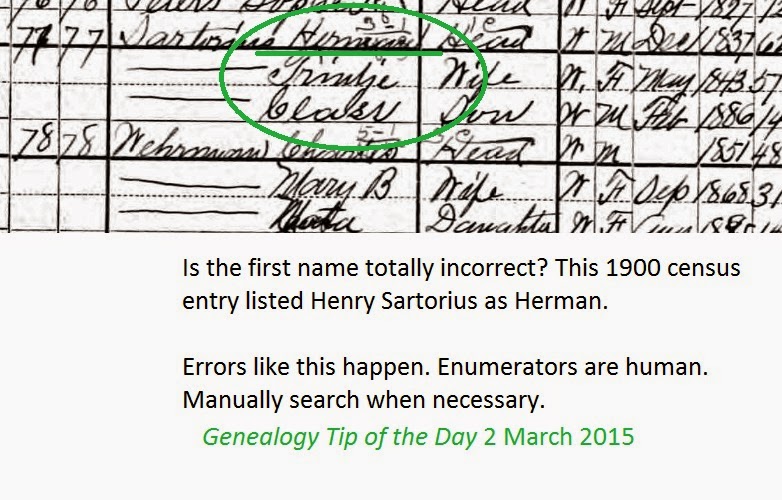For those who are new,
Genealogy Tip of the Day is usually one daily genealogy research tip. To help pay the bills, we do occasionally mention our sponsor,
GenealogyBank, or activities in which I am involved. That's it.
We don't post general genealogy event announcements here, don't announce products or publications, and don't distribute press releases via the
Tip of the Day mailing list. There are other venues for those publications and announcements. This is not one of them.
All tips are "self-generated," usually as I'm doing actual research. For that reason, we will have similar tips from time to time and sometimes topics will seem to be mentioned in "spurts" if I'm working on a certain project. Also for that reason tips probably won't mention locations or records with which I'm not familiar (
my incomplete ancestor table is here). I rarely write tips on whatever is "trending" just to get more traffic. That's just how we roll.
Suggestions are always welcome!
And, as always, thanks for your support of
Genealogy Tip of the Day. It is appreciated--please let your genealogy friends know about us! Thanks.









